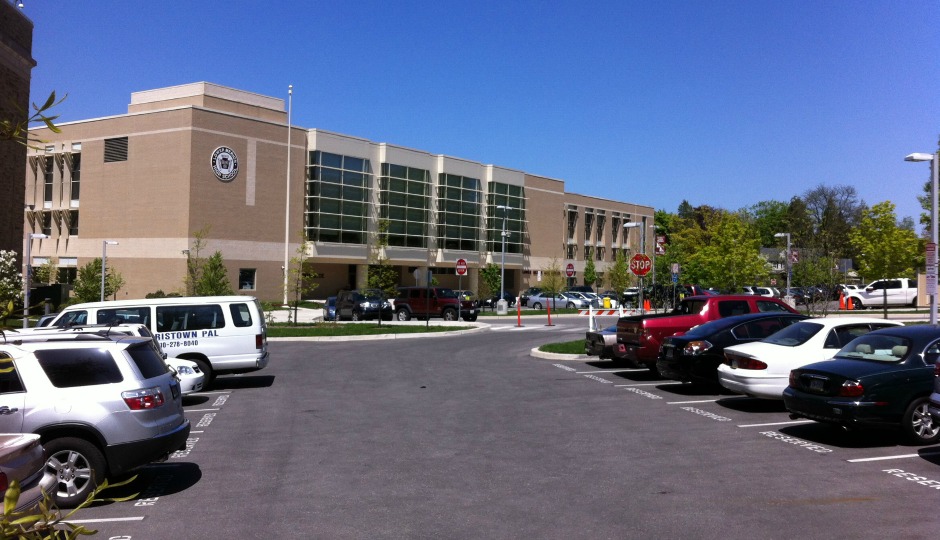Lower Merion School District Forced to Withdraw Tax Hike

Lower Merion High School. Photo | ifly6 via Wikimedia Commons
A Montgomery County Judge told the Lower Merion School District it couldn’t raise taxes as much as it proposed this year, claiming the school district has, for years, exaggerated multimillion dollar deficits to warrant tax increases.
In a taxpayer lawsuit filed by attorney Arthur Wolk, Common Pleas Judge Joseph A. Smyth ordered the district to withdraw its planned 4.4 percent tax increase for 2016-17.
The judge found that the district has increased taxes by more than 53.3 percent since 2006 to make up for supposed budget holes – but recent findings reveal that despite the district’s projected budget deficits, it has continually had a surplus at the end of each school year. Smyth has not yet decided whether or not those who already paid their current school tax bills will receive rebates – an estimated $1,400 per household.
The judge ruled that the district can increase its taxes by 2.4 percent for 2016-17, the maximum amount allowed under state law, but even that amount is likely more than is required to balance the budget for 2016-17, Smyth said. According to the Associated Press, the Lower Merion School District has requested to raise its property taxes more in the past 10 years than any other school district in the state.
The school district claimed it needed money for special education and employee pension costs when convincing state officials that the tax hikes were necessary, but the judge found that the district had a surplus of money each year for special education, as well as $15.3 million in a retirement fund that apparently wasn’t used to pay pensions. The district also had $50 million to $60 million stored in reserve since 2006, according to testimony from Lower Merion business manager Victor Orlando.
The Lower Merion School District said it plans to appeal the decision in a statement:
“Specifically, the Court has taken issue with the District’s fund balance – funds reserved and budgeted for future needs. In doing so, the Court has stated that the District has intentionally overestimated budgets and created surpluses to achieve this reserve. The premise that school districts’ unspent funds are the result of intentional overestimation is flawed; these funds instead reflect efforts taken by the District to manage its finances in a responsible manner. The District does not spend funds simply because they have been budgeted and after each budget is passed, continues to work hard to capitalize on opportunities to reduce expenditures and realize cost savings.”
Yesterday, Wolk responded to an email sent by Dr. Robert Copeland, superintendent of the Lower Merion School District, in which Copeland accused Wolk of trying to make public education “inherently inferior to private school education.” Wolk denied Copeland’s accusation in a letter published in Main Line Media News, stating the the following:
“There was no need for a tax increase this year or any year in the last ten according to audited statements. We have the highest paid teachers, highest paid administrators, and too many of them, and the most expensive school buildings and the highest per student cost of any place in the nation. Our school performance is on par with districts that spend half of what LMSD spends which means that the administrators have failed in their jobs and the people supposed to provide oversight, the Directors, have done nothing.”
Wolk said he intends to lead a movement entitled “Dump the Lower Merion School Directors,” through which he and others intend to “run a slate of responsible independent candidates whose mission it will be to restore honesty and integrity to the district.”
Jim Buckheit, executive director of the Pennsylvania Association of School Administrators, told the Inquirer that he expects to see similar lawsuits involving other school districts in the future as public schools tend to rely more heavily on reserves. It’s largely a result of funding shortfalls resulting from the state’s nine-month budget impasse, Jay Himes, executive director of the Pennsylvania Association of School Business Officials, told the Inquirer.
See Smyth’s ruling in the case below.
Follow @ClaireSasko on Twitter.
Smyth Order Lower Merion by PhiladelphiaMagazine on Scribd


